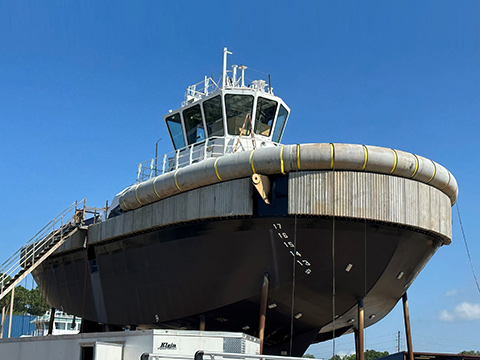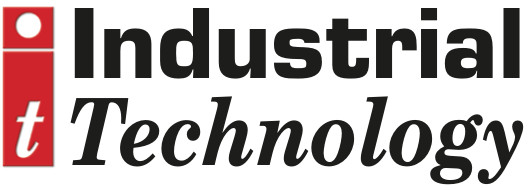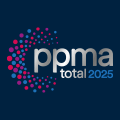
Posted to News on 23rd Feb 2024, 11:00
Fender fortified with polyurethane resin on zero emissions tugboat
When the front fender for the eWolf electric tugboat needed to be bonded using a strong adhesive that would withstand pushing and pulling forces during the process of adhering the fender to the eTug, the manufacturer turned to Belzona.

In July 2023 the International Maritime Organisation (IMO) considerably vamped up its strategy on the reduction of greenhouse gas emissions from ocean freight. One of the fundamental ways in which this sector can achieve this is through scalable zero emission fuels'.
According to a 2023 Report from one of the world-leading authorities on climate science, Climate Action Tracker: To achieve full decarbonisation, the shipping sector will need to adopt alternative fuels, otherwise known as scalable zero emission fuels, to power vessels. Scalable zero emission fuels typically refer to hydrogen, ammonia, e-methanol and electric battery.
Considering the seismic reduction in global greenhouse gas emissions required by the maritime industry by 2030, advances in technology, such as the US' first zero emissions, all-electric tugboat, the eWolf, is a huge step forwards in terms of decarbonising this sector.
Launched in 2023, the 25 metre eWolf is leading the way in terms of mitigating the climate impact of the maritime sector. Over the first 10 years of its use, the operation of the new eTug' will reduce 178 tons of nitrogen oxide (NOx), 2.5 tons of diesel particulate matter, and 3,100 metric tons of carbon dioxide (CO2), versus a conventional tugboat.
The eWolf is capable of speeds of up to 12 knots, and will be powered by a 6.2 megawatt-hour main propulsion battery and two electric motors. The electricity comes from a charging station that is part of a microgrid facility, equipped with two energy storage containers. Battery modules in each container have a storage capacity of nearly 1.5 megawatt-hours.
A number of challenges arose during the production of the eWolf, not least the bonding of the front fender to the eTug. Having established confidence in Belzona technology from using their polymeric systems in previous applications, the Customer chose Belzona once again for the application.
Following an inspection by Micah Heath, technical consultant at Belzona distributorship, Belzona Alabama, the fast curing, one-part elastomeric primer, Belzona 2911 (Elastomer QD Conditioner), was specified. This conditioner is optimised for adhesion to a variety of substrates including rubber, as required for this particular application. For the bonding, the polyurethane resin, Belzona 2211, was specified. This flexible rubber repair material is optimised for applications where high build, durability and elasticity are required.
Commenting on the application procedure, Micah said: Once the required surface preparation was completed using grinding wheels and MBX Bristle Blaster, the conditioner, Belzona 2911 (Elastomer QD Conditioner), was applied. As soon as the conditioner was touch dry, Belzona 2211 was used to attach the plugs into the fender, and then attach the 3-part fender together.
The application team used a manual cable puller to apply the necessary pressure to ensure the various surfaces were sufficiently pressed together. Once completed, the application was left for 36 hours to cure, achieving an excellent mechanical bond.
Decarbonising the marine sector
In addition to pioneering technology like the eTug, polymeric systems also play a key role in the decarbonisation of this sector. Belzona's circular economic business model is grounded in the practice of repairing and improving damaged assets, rather than decommissioning and replacing them. Not only does this allow the asset owner to make considerable financial savings, but it also mitigates the carbon footprint incurred during the process of replacing damaged assets. In turn, this supports a net zero by 2050 pathway, in line with the Paris Agreement.
In addition, Belzona systems are manufactured according to the ISO 9001 quality management systems and are approved by classification societies from all around the world including: Lloyd's Register, American Bureau of Shipping, Bureau Veritas, RINA Services, DNV, China Classification Society and the Korean Register of Shipping.






